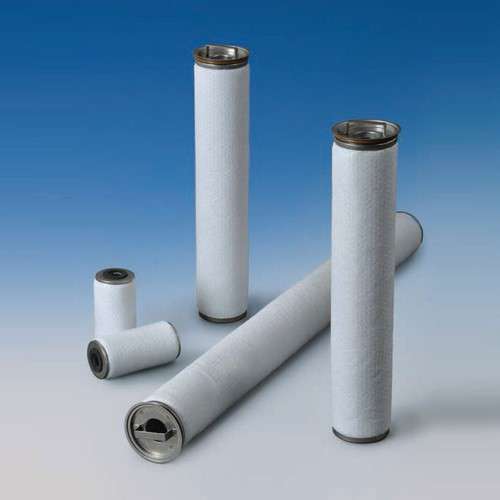The financial burden for the Marine industry is significant. Ship operators spend millions of dollars for fuel each year while they must prepare for the energy transition. These challenges are becoming more difficult to ignore. Protecting diesel powered assets are of high importance to keep the business in operation. Running fleets of large diesel-powered engines is a more complex task. High-Pressure Common Rail System (HPCR) systems require high pressures exceeding 2000 bar and injector nozzle openings in the 2-3 µm diameter range. Achieving these results requires the diesel fuel to be at least 30 times cleaner than what is acceptable for standard EUIs and over 100 times cleaner than what is typically dispensed at the pump. It is impossible to attain this level of cleanliness with on-board filtration alone, and supplementary bulk and point of filling filtration is required.
The Impact of Particulate Contamination on Diesel-Powered Engines
Three types of engine fuel injection system failures can be attributed to hard particulate contamination:
- Mechanical failures from component wear and blocking component movement
- Electrical failures (typically as injector solenoid burnout) from silting around the poppet valve stem, restricting movement
- Performance failures from blocking of injector nozzles and altering injector spray patterns
How Dirty is it?
It is essential to consider the level of contamination in diesel fuel. For instance, the table below shows the amount of contaminant mass and water volume that would be pumped in one year for a large mine site using 137,000 liters of diesel fuel per day for different fuel contamination levels.
| ISO 4406 Cleanliness Code | 22/20/17 | 20/18/15 | 18/16/13 | 12/9/6 |
| Kilograms of particulate contaminant pumped per year | 800 | 200 | 50 | 0.4 |
| Water Content (ppm) | 5000 | 1000 | 500 | 100 |
| Liters of water equivalent pumped per year | 250,000 | 50,000 | 25,000 | 5,000 |
Managing diesel fuel cleanliness must be a site-wide investment top priority for ship operators. It should involve using advanced particulate and water filtration technologies from the point of delivery, through storage, and up to the dispensing nozzle.
Supplying equipment with diesel fuel that meets required cleanliness levels results in several significant benefits, including:
- Improved diesel engine performance and reliability
- Improved diesel engine operating costs
- Reduced diesel engine maintenance costs
- Reduced Engine downtime
Featured Products
Particle Filtration for Diesel Engines
Bulk Fuel Treatment (2nd stage) Centrifuge Protection
Ultipleat Highflow for particle filtration
The Ultipleat High Flow filter satisfies the need for an economical and reliable filter system for high flow applications. Used in a wide variety of applications where high flow rates and long service life are primary requirements, Ultipleat High Flow filter systems have been successfully used worldwide in installations with flow rates up to 115,442lpm (30,500 gpm).
With an innovative crescent-shaped pleat design, the Ultipleat high flow filter area is packed into a single cartridge while fully utilizing the media for solids collection. Ultipleat's high flow filtration systems provide exceptional filter service life when dealing with low fluxes and higher levels of incoming contaminants, reducing the number of filter changeouts and lowering the cost of replacement cartridges and disposal of spent filters.
Water Removal from Bulk Fuel
Liquid/Liquid Coalescer Free Water Removal
Last Chance Filter for critical component protection
- Strainer for critical component protection (valves, pumps etc)
For support on diesel fuel treatment solutions, contact our team of filtration experts on the form below.










